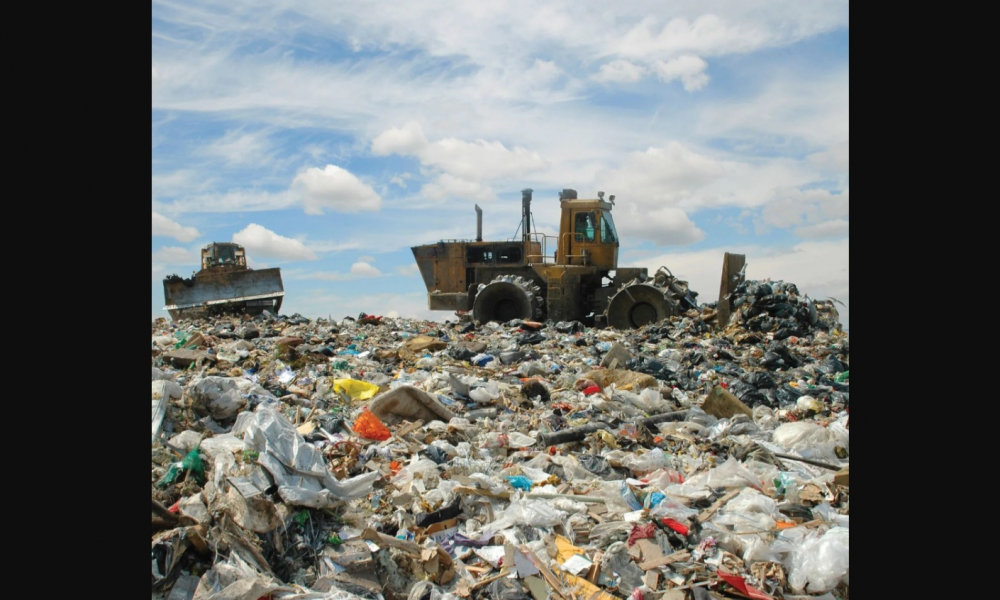By Charles K Mark
Sections of business community in Juba are calling for the privatization of waste management by Juba City Council to achieve a safe, clean, and environmentally friendly.
In an interview with the No. 1 Citizen Daily Newspaper, the members said that their efforts towards cleaning the city would be aimless, ineffective, and inefficient as long as the city authorities took sole responsibility.
Oyiki Sirino Kassiano, the Executive Director of the Safe African Environment Organization, stated that it is not solely the responsibility of the city council to ensure Juba’s cleanliness.
“If you talk about ‘Juba City Council;’ that name only scares people, that means Juba City Council should not go by themselves to advocate for that or maybe to talk about that,” said Oyiki.
The environmental activist and businessman explained that decentralization in waste management involves engaging individuals who may not be perceived as mere collectors of money by citizens.
“They should involve everyone to be part of it. It should be the concern of everybody. Then, in the end, in time to come, in a few months to come, Juba is going to change,” he noted.
“If you look around, Juba City Council always collects money from businesspeople, but they don’t actually implement it. They collect money in the name of garbage, but they do not carry that waste. They put the waste along the roadside, but it takes them sometimes one week,” Mr. Oyiki stated.
He stressed that subcontracting the business community and other companies to carry out awareness and do the work on behalf of the City Council is another strategic way to effectively manage waste.
Mr. Sirino said public health officers should also be engaged and other work extended to the quota councils, saying they are closer to the people.
Another entrepreneur, Marilyn Gorreti, an IT consultant with Reality Home Technologies, said the maintenance of Juba City must be a collaborative partnership through which the citizens are mobilized, sensitized and involved in terms of action against waste.
“So, I believe they will also cooperate in the collection of the rubbish and disposing of it in the right place,” Madam Marilyn suggested.
She urged the general public to take issues of sanitation and hygiene seriously by starting with themselves and then extending to the rest of the members.
“My responsibility is that since I have this tendency that I can’t just drop the waste anyhow, I feel ashamed if I am the one disposing of the waste. Even when I drink water, I make sure I keep my bottle and I find a dustbin where I can drop it,” Marilyn exemplified.
Meanwhile, Dina Keji John, the Chairperson of the Juba City Legislative Council, said information on waste management needs to spread and reach rural areas so that people can know how to clean and manage waste.
Keji suggested waste should be separated according to categories such as glasses, electronics, and foods, among others, for easy isolation and recycling.
Waste Management plan
In November 2022, Juba City Council (JCC) launched the “Solid Waste Management Master Plan for the Years 2021–2030.”
The Master Plan is the first long-term plan for solid waste management (SWM) with four (4) main guiding principles.
Under Principle (1), seek to clarify the role and responsibilities among stakeholders such as the Ministry of Environment and Forestry, the State Ministry of Agriculture, Environment, and Forestry, three block councils in Juba City and Juba County, and the Juba City and County Solid Waste Management Group (JC/CSWMG)”, which is a cross-sectional organization consisting of the stakeholders on waste management in Juba City.
In addition, JCC aims to strengthen its financial system through the introduction of fee collection for household waste collection as well as markets and institutions.
On Principle (2), JCC aims to improve its waste collection system by developing its capacity, raising public awareness, and communicating with its citizens.
Principle (3) focuses on the rehabilitation of the Juba Controlled Dumping Site, which is a final disposal site located in Rejaf Payam, and the establishment of a proper maintenance system for waste collection vehicles and heavy equipment.
Finally, under Principle (4), in order to establish a sound material-cycle society, JCC aims to promote recycling and waste reduction.
However, it remains to be seen if the 10-year “Solid Waste Management Master Plan for the Years 2021–2030” implementation will yield any meaningful results.




